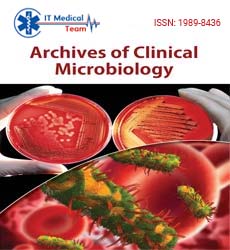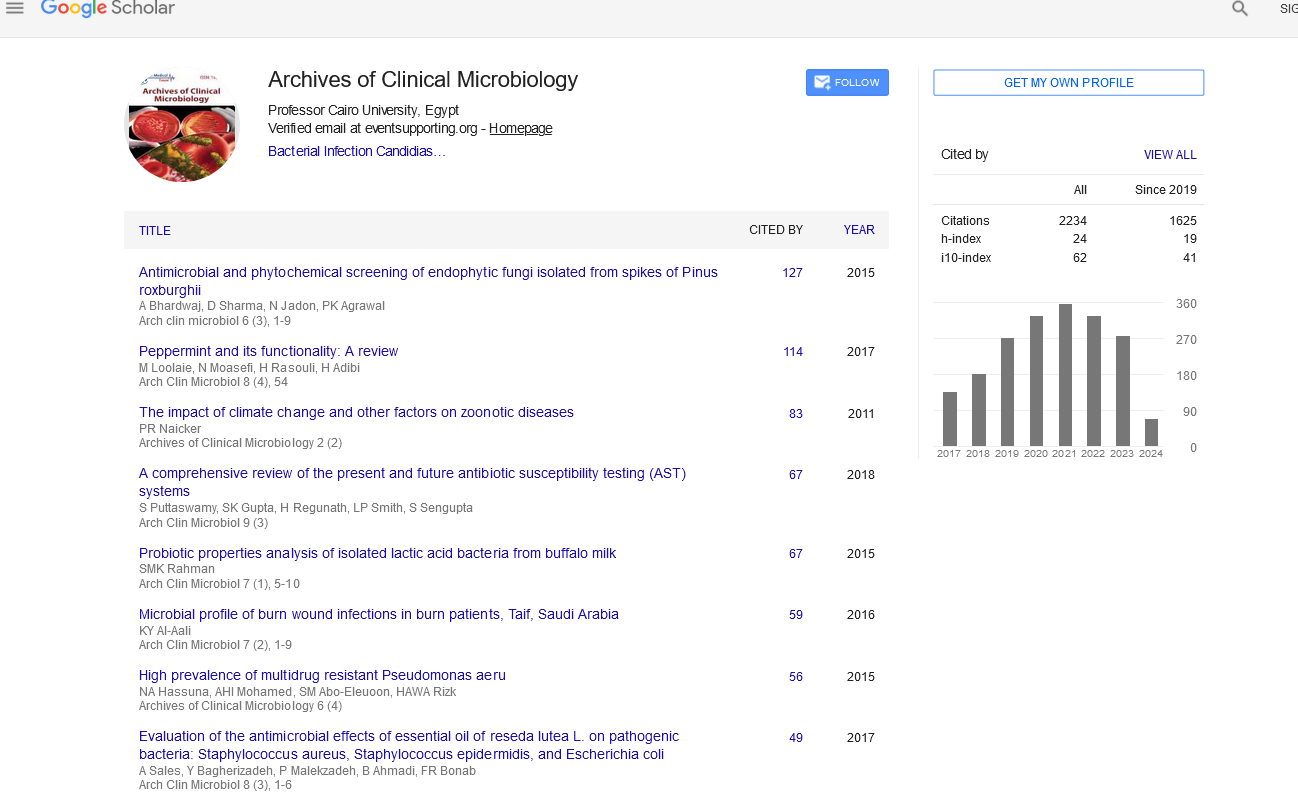Commentary Article - (2024) Volume 15, Issue 1
Unraveling the Secrets of Microbial Identification: A Comprehensive Guide to Biochemical Tests
Felicia Sturza*
Department of Microbiology, University of Bucharest, Bucharest, Romania
*Correspondence:
Felicia Sturza, Department of Microbiology, University of Bucharest, Bucharest,
Romania,
Email:
Received: 01-Jan-2024, Manuscript No. IPACM-24-14436;
Editor assigned: 03-Jan-2024, Pre QC No. IPACM-24-14436 (PQ);
Reviewed: 17-Jan-2024, QC No. IPACM-24-14436;
Revised: 24-Jan-2024, Manuscript No. IPACM-24-14436 (R);
Published:
01-Feb-2024
Description
In the realm of microbiology, the identification of microorganisms plays a pivotal role in understanding their characteristics, behavior and potential impact on human health and the environment. Biochemical tests serve as indispensable tools in this process, allowing scientists to unravel the intricate biochemical makeup of various microorganisms. This article delves into the world of biochemical tests, exploring their significance, types, and applications in microbiological research.
The significance of biochemical tests
Biochemical tests are fundamental in microbial identification as they provide insights into the metabolic pathways and enzymatic activities of microorganisms. By subjecting these microscopic entities to specific biochemical assays, scientists can decipher their unique biochemical fingerprints. This, in turn, aids in distinguishing one microbe from another and understanding their ecological roles, potential pathogenicity and susceptibility to antimicrobial agents.
Types of biochemical tests
Catalase test: Catalase, an enzyme found in the cells of many microorganisms, plays a crucial role in the breakdown of hydrogen peroxide. The catalase test involves adding hydrogen peroxide to a bacterial culture to observe the production of oxygen bubbles. Positive results indicate the presence of catalase, aiding in the differentiation of bacteria like Staphylococcus from Streptococcus.
Oxidase test: The oxidase test helps identify bacteria that possess cytochrome C oxidase, a key enzyme in the electron transport chain. This test involves applying a reagent containing a chromogenic substrate to a sample. The development of a color change indicates the presence of oxidase, aiding in the classification of bacteria into oxidase positive and oxidase negative groups.
Triple Sugar Iron (TSI) agar test: TSI agar is a versatile medium used to differentiate enteric bacteria based on their abilityto ferment sugars and produce hydrogen sulfide. The slant and butt of the agar tube are observed for color changes, gas production and hydrogen sulfide production. This test is particularly valuable in identifying members of the Enterobacteriaceae family.
Indole test: The indole test assists in identifying bacteria capable of producing indole, a byproduct of tryptophan metabolism. After inoculating a bacterial culture into a medium containing tryptophan, the addition of Kovac's reagent helps detect indole production. Positive results aid in the differentiation of bacteria, such as Escherichia coli.
Applications of biochemical tests
Clinical microbiology: In clinical settings, biochemical tests are crucial for diagnosing infectious diseases. Rapid and accurate identification of pathogens helps healthcare professionals prescribe targeted antimicrobial therapies, leading to more effective treatments.
Food microbiology: Biochemical tests play a vital role in ensuring the safety and quality of food products. Testing for specific metabolic activities allows for the identification of spoilage organisms and pathogens, contributing to the prevention of foodborne illnesses.
Environmental microbiology: Biochemical tests are applied to study microbial communities in various ecosystems. By understanding the metabolic capabilities of microorganisms, researchers can assess their impact on nutrient cycling, pollutant degradation and overall ecosystem health.
Biochemical tests serve as indispensable tools in the intricate world of microbial identification, offering valuable insights into the metabolic intricacies of microorganisms. From clinical diagnostics to environmental monitoring, these tests play a pivotal role in diverse scientific domains. As technology advances, complementing traditional biochemical tests with molecular techniques further enhances our ability to unravel the secrets of the microbial world, paving the way for innovative solutions in medicine, agriculture and environmental science.
Citation: Sturza F (2024) Unraveling the Secrets of Microbial Identification: A Comprehensive Guide to Biochemical Tests. Arch Clinic Microbio Vol: 15 No:1:239





